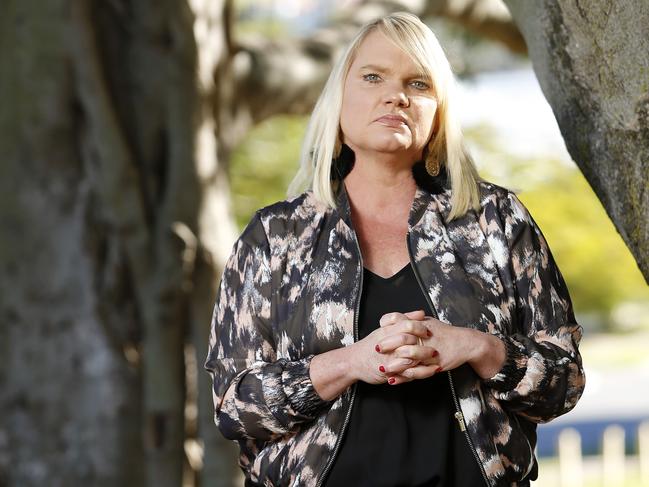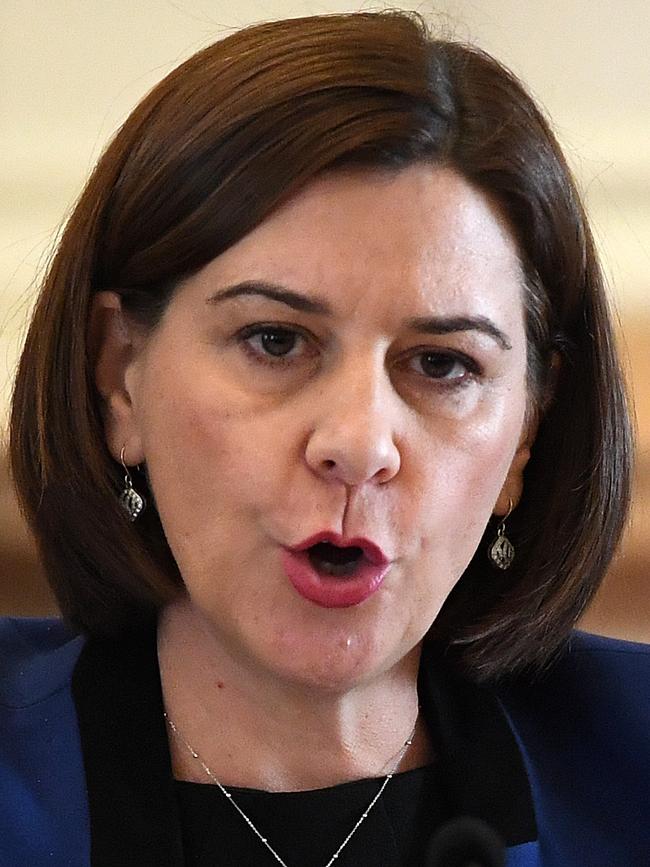Zoe McGinty’s death prompts calls to expand vaccination program
PRESSURE is mounting on the State Government to expand its vaccination program following the tragic death of a fit and healthy 20-year-old Brisbane woman only 16 hours after contracting a deadly disease.
QLD News
Don't miss out on the headlines from QLD News. Followed categories will be added to My News.
THE tragic death of Zoe McGinty, an otherwise healthy Brisbane 20-year-old, could have been prevented by a simple vaccination.
Zoe died of meningococcal disease shortly after 2am on September 3 last year, just 16 hours after coming home from the gym and telling her mum she felt a bit tired.
“The trauma of what happened is horrific,” said Zoe’s mother Kirsten McGinty, 47, of Clayfield in Brisbane.
“I have enormous anguish and keep wondering if I could have done something differently to save my beautiful girl.
“After she went to lie down she started to vomit and got diarrhoea, the same symptoms as a gastro bug, so I fully expected her to be fine the next day.
“Zoe had her whole life ahead of her, but no-one, not even the paramedics, called it as meningococcal, she didn’t have the telltale rash.”
As Queensland enters peak season for the disease, the grief-stricken mum is campaigning for free vaccines against the five known invasive strains in Australia and pressure is mounting on the State Government to expand its existing immunisation programs, which addresses only teenagers aged 15-19, and Year 10 students.

Brisbane GP, and mother of four, Dr Catherine Rogers said Queensland needed a catch-up program – like South Australia and Tasmania have announced this month – to ensure all people were protected from the disease which can strike without warning and kill within hours.
Meningococcal occurs when bacteria, carried in mucus and transferred through kissing, coughing or sneezing, invades the body.
It is difficult to detect early because symptoms include vomiting and headaches, like a routine stomach bug or a case of flu.
“This is not just a young person’s disease,” said Dr Rogers, of Junction Road Family Practice in Clayfield.
“There are five strains of meningococcal and just because children have been vaccinated under the national system for C – and its replacement quad-vaccine ACWY as of July 1 – doesn’t mean they are fully protected.
“The vaccine for B, the most prevalent strain, can cost up to $195 per dose and babies can require four doses, which makes the cost prohibitive for many families.
“My advice is to shop around for price because if you are paying more than $120 a dose, that’s too much.”
Health Minister Steven Miles said he would review the state program for 15-19 year olds, which is due to end in December, but said that funding of the B vaccine was a federal responsibility.


Opposition Leader Deb Frecklington said the Palaszczuk Government was failing Queenslanders by not funding the B vaccine and by limiting its ACWY program.
“It is totally unacceptable that the number of people contracting this terrible disease is increasing,” Ms Frecklington said.
“It’s clear that more needs to be done, which is why other states are boosting their immunisation programs.
“Sadly, here in Queensland, the number of notifiable cases has more than doubled in the last five years, with 30 cases already reported in 2018.”
Ms Frecklington said, if elected, the LNP would introduce a targeted meningococcal B vaccination program and investigate extending the ACWY programs further.
In South Australia, which this year has had 14 cases of meningococcal B – the same number as in Queensland – B vaccinations will be free for babies from October, with a catch-up program for children aged up to four. In early 2019, it will add a similar program for Year 10 and 11 students, and young people aged 17-20.
On Thursday, Tasmania announced a three-month rollout of free ACWY vaccination for all people born after August 1, 1997, extending its program that previously covered only 15-21-year-olds.

Professor Robert Booy, head of clinical research at the National Centre for Immunisation Research and Surveillance, said vaccinations were proved to work.
After the meningococcal C conjugate vaccination was put on the National Immunisation Schedule in 2003, the number of cases of C decreased from 225 in 2002 to 14 in 2017.
In the UK, the funding of the meningococcal B vaccine for infants since September 2016 halved the incidence of B and boosted herd community protection, Prof Booy said.
“I’m the greatest advocate for vaccines, but we have to be sensible – weigh up the costs and measure the damage, which is death and disability,” he said. “In the UK they did very good studies, but then they said, ‘we think the damage, including the long-term costs of disability, could be three times what was measured originally’.”
That revision resulted in the vaccine becoming more viable to fund, and corresponded with drug companies dropping their prices.
Eleven months after Zoe’s shock death, Ms McGinty says her mission is clear.
“We have a solution. It’s not like we have to do decades of research to come up with vaccines. We’ve got them,” she said.
“How many parents have to bury their children, how many families have to be torn apart?”
Join the campaign at facebook.com/goforzoqld

QUEENSLAND HOME TO INVASIVE NEW STRAIN
A NEW strain of invasive meningococcal disease has been identified in Queensland, although authorities admit they know little to nothing about it.
Of the 30 cases of meningococcal reported in the state so far this year, two are of a previously unreported strain, E.
Professor Robert Booy, a renowned Sydney-based infectious diseases expert, said he had “never heard of it”.
The two cases were recorded in this month’s Queensland Health communicable diseases update “for which notification numbers are of public health interest”.
A department spokesperson could not explain how E had come to manifest itself as invasive, but said it was an “extremely rare” strain with “no specific vaccine”.
The news comes as Queensland enters peak season for meningococcal disease.
In 2017, there were 69 cases in the state, up from 45 in 2016 and 31 in 2015.
Infants and young people 15-24 are most at risk, but the disease can strike at any age.
E is one of 12 strains of meningococcal, but not one of the six (A, B, C, W, X and Y) that can cause epidemics, according to the World Health Organisation.
Prof Booy said immunisation worked yet vaccination rates were patchy.


